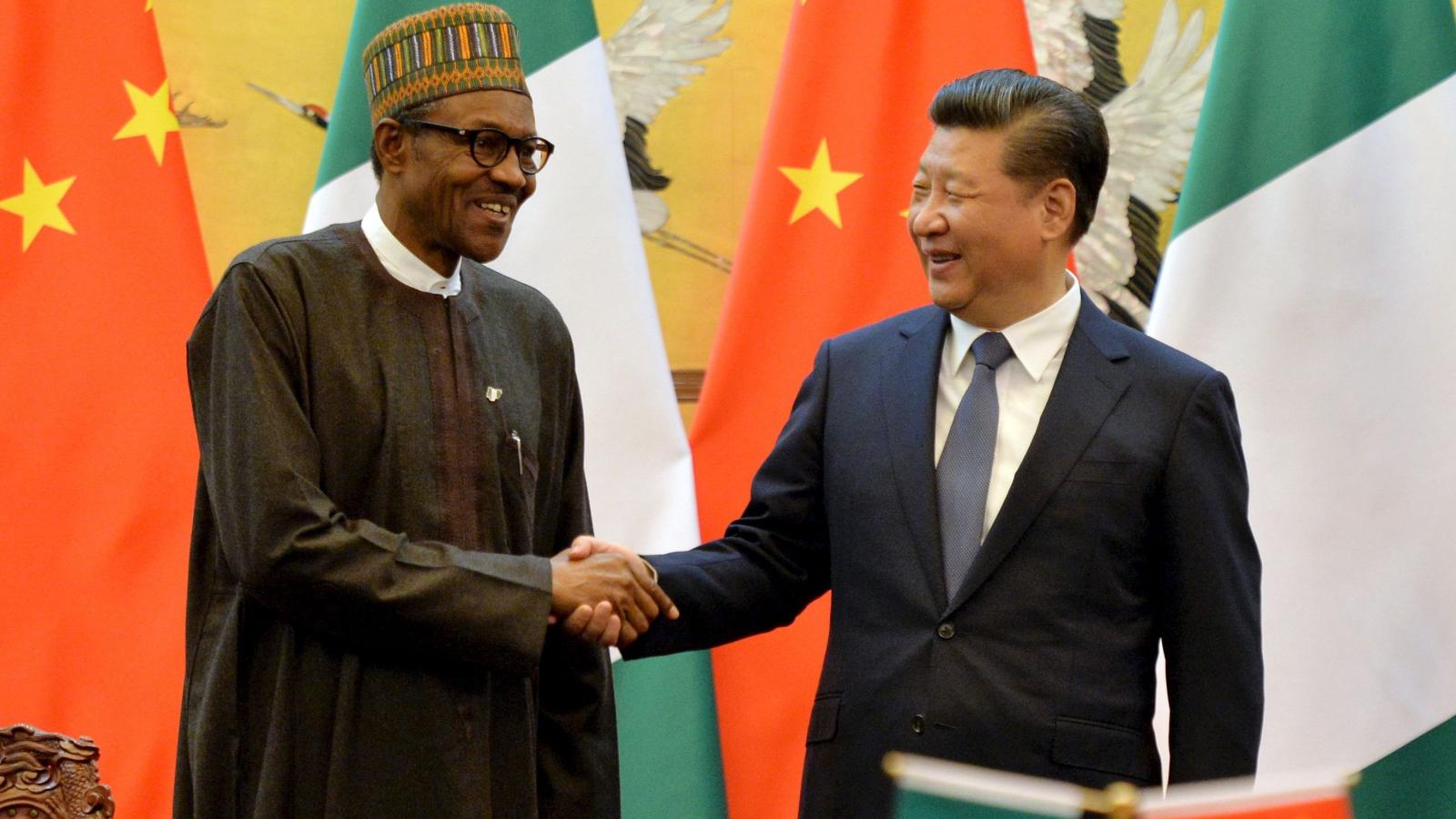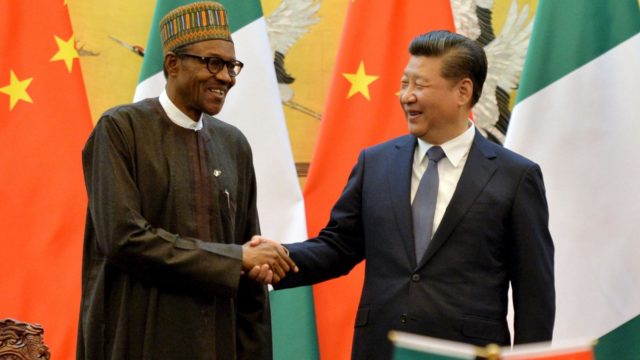 Sometimes a throwaway sentence is more illuminating than it ought to be. A line in an article in Roads & Kingdoms in January about the Chinese in Lagos did just that. Near the end of the piece, the author wrote:
Sometimes a throwaway sentence is more illuminating than it ought to be. A line in an article in Roads & Kingdoms in January about the Chinese in Lagos did just that. Near the end of the piece, the author wrote:
On my final night in Lagos, Fang invites me to the Huawei offices for dinner, handing me a guest pass and taking me through a winding corridor that opens out into a futuristic canteen. Staff can pay for their meal through Wechat, the Chinese social media app.
Being fairly acquainted with Nigeria’s tech scene and mobile money regulatory environment the last sentence jumped out at me—paying for things with WeChat is not something that is currently available to Nigerians as an option. I asked a couple of my friends in the Lagos tech scene how the Chinese were able to do this in Lagos and they simply shrugged and said “they are running their own little country here.”
It is not hard to come by data showing the scale of China’s investments and influence in Africa—the China Africa Research Initiative at the Johns Hopkins University estimates that, from 2000 to 2015, the Chinese government, banks and contractors extended $94.4 billion worth of loans to African governments and state-owned enterprises. From a few million dollars in 2000, the amount of loans topped $16 billion in 2013 alone. Whether or not these loans are value for money or just a flow of money from the Chinese government to Chinese companies via Africa remains a matter of debate. A $600 million Chinese loan to fund the installation of CCTV cameras across the Nigerian capital Abuja has since been mired in corruption and scandal. It is hardly an isolated story.
But there is another part of the Chinese story in Africa that is rarely documented. That of the ordinary businesses who head to Africa, often without state backing, seeking to make a fortune. These businesses have mostly been careful to remain outside the spotlight and rarely ever speak to local media. A surprising McKinsey report from June 2017, based on extensive fieldwork, estimated that there were more than 10,000 Chinese owned firms operating across Africa, nearly four times what the numbers from the Chinese Ministry of Commerce (MOFCOM) showed. No one can say for sure—not even the Chinese government—how many Chinese businesses are in Africa, never mind what they are doing there.
One of the McKinsey report’s authors, Irene Yuan Sun, has however written a book—The Next Factory of The World: How Chinese Investment Is Reshaping Africa—that helps to illuminate the experience of Chinese businesses in Africa. Being of Chinese descent herself, she was able to get Chinese business owners in Africa to open up in a way that they almost never do to local media. What emerges is a surprising mix of success and failure with a good dose of fear and loathing thrown in. As someone who grew up in Nigeria until a decade and a half ago (and still maintains strong ties to the country), I found the book to be full of surprises and insights.
A broad pattern to these businesses can be sketched out—a Chinese business finds business increasingly hard to do in China, mostly due to rising costs and fierce competition. The business owner embarks on an exploratory trip to an African country and makes a decision to invest on the spot. In short order, they are pouring millions of dollars into building a factory in the African country. Beyond the narrow sectors of the economy in which they decide to operate, the Chinese businessmen remain almost completely out of sight to the local population. When Chinese businesses get reported on in the local newspapers, it is almost always about the maltreatment of local workers or a racist incident (often borne of misunderstanding).
In Nigeria, I am yet to hear of a marriage between Chinese and Nigerians in Nigeria and in my frequent visits to Nigeria, it is hard to recall bumping into Chinese revelers on a night out or sharing a restaurant or bar with them. Nigerians and Chinese in Nigeria are, to borrow Longfellow’s famous phrase, like ships that pass in the night and speak to each other in passing. This was comically illustrated by a line in Sun’s book where the author interviews a Chinese businessmen about the seemingly permanent tension between Chinese factory owners and Nigerian workers. In frustration, the Chinese businessman said, “Nigerians complain that Chinese people spit. But they pee in public on the side of the road all the time!”
Some of them have had spectacular success such as the Tung family who run a billion dollar steel business and sit on the board of one of Nigeria’s premier development finance institutions—Africa Finance Corporation. Then there’s the Lee family whose Lee Group produces everything from bottled water to bread as well as 1.2 million pairs of flip-flops everyday, retailing them for around a dollar a pair. They have practically a 100-percent market share of the flip-flop market in Nigeria and West Africa but this monopoly is not visible to most people purely because they have achieved it through very low prices making it impossible for smugglers to compete against them and crucially, dispensing of the usual practice of local businessmen to get the government to ban or impose tariffs on the competition for them.
Yet there is more to the story. The Tungs and Lees are only the surviving two families out of four that settled in Nigeria decades ago. The other two lost their businesses in one of Nigeria’s many economic shocks. There have been plenty of Chinese failures across the continent and in Nigeria, in particular. The stories of Jason Han and John Xue are particularly instructive. In their 50s and seemingly bored in semi-retirement in China, they heard about a Chinese company that was struggling to develop a free trade zone with a state government in Nigeria’s south west. They embarked on a week long trip to Nigeria, their first ever visit to the country, and while there concluded that they could help the state turn around the project. In a matter of weeks they had moved to Nigeria and taken over the running of the free trade zone. In four years under their management, the zone managed to attract 24 businesses and provide employment to 4,500 people, with only 200 of those being non-Nigerians. The zone was praised by the Nigerian and Chinese governments as a shining example of China-Africa relations.
And then the music stopped. The old management company which had been terminated still had friends in the state government and decided it now wanted the zone for itself again. A campaign of harassment and intimidation was launched against Han and Xue including the detention of one of their managers for two weeks. Jason Han appealed to the Nigerian president in an open letter about their ordeal but in the end, they were forced to abandon the zone and leave Nigeria. This illustrates a particular kind of risk faced by Chinese businessmen in countries like Nigeria—politicians are able to trample on their rights without consequence because the Chinese are still viewed with some suspicion by the average Nigerian. The Chinese are thus ever only one infraction away from being scapegoated by a politician seeking cheap popularity or votes (all Nigerian politicians are populists) and the Chinese government is always reluctant to come to the aid of private Chinese businesses in Africa, if it even knows they exist at all.
What then to make of all of this? The most obvious is that there are a very large number of Chinese businesses on the ground in Africa making their way in often impossible circumstances. Many of them have met with great success and many others have lost everything. Even after spending decades in the country, you often cannot find any meaningful reporting on them in the local media as is the case with the Lees and Tungs in Nigeria. Meanwhile the western media tends to focus, sometimes anxiously, on the government side of the relationship that comes in large dollar numbers but is often far less than meets the eye. The Chinese and their hosts continue to live side by side but far apart—the gap between them inevitably filled by mutual suspicion. The Chinese in Lagos retreat into their own world where they can make payments with WeChat, just like in China, thousands of miles away.
One can be optimistic or pessimistic about the future of this relationship. Much of it is useful in providing cheap products and employment while a lot of it remains frustrating borne of the seeming refusal of the Chinese to engage with their hosts creating a kind of standoff.
Even after many decades of doing business in Africa, Chinese businesses in Africa can hardly claim to be friends with their hosts. Like ships that pass in the night and speak to each other in passing.







